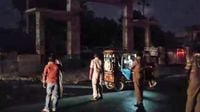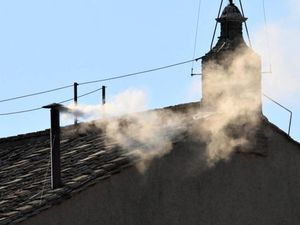On May 8, 2025, tensions between India and Pakistan escalated dramatically as the Indian Army successfully foiled a major drone attack launched by Pakistan across multiple regions, including Punjab's Gurdaspur, Rajasthan's Jaisalmer, and Jammu and Kashmir's Pathankot. Reports indicate that around eight missiles were aimed at critical sectors such as Satwari, Samba, RS Pura, and Arnia, but were intercepted by Indian Air Defence units before they could cause any damage.
Throughout the day, several drones were also intercepted by India's Integrated Air Defence System in locations including Jaisalmer, Jammu, Akhoor, and Gurdaspur. The Indian armed forces remained on high alert as mortar shelling was reported near the Line of Control (LoC) in Samba, with officials confirming that the situation was evolving rapidly.
According to a statement from the Ministry of Defence, "Military stations at Jammu, Pathankot & Udhampur were targeted by Pakistani-origin drones and missiles along the International Border in J&K today. The threats were swiftly neutralised using kinetic and non-kinetic capabilities in line with established Standard Operating Procedures (SOPs). No casualties or material losses were reported."
The escalation in hostilities followed India's recent Operation Sindoor, which involved precision strikes on terror camps in Pakistan and Pakistan-occupied Kashmir (PoK) in retaliation for a deadly terrorist attack in Pahalgam on April 22, 2025, that claimed the lives of 26 civilians, including a Nepali citizen.
As the situation unfolded, a complete blackout was enforced in several districts of Punjab, including Pathankot and Amritsar, and in parts of Jammu and Kashmir, as a precautionary measure. Loud noises, suspected to be shelling, were reported in Jaisalmer, prompting local authorities to assure residents that there was no immediate threat.
In response to the ongoing aerial threats, Indian forces launched an artillery assault on the Sialkot Bajwat Sector in Pakistan, marking a significant escalation in the conflict. Reports suggested that the Pakistan Army was retaliating, but the extent of damage on either side was yet to be confirmed. Defence analysts noted that this artillery engagement raised concerns over regional stability.
"We were aware of such an attempt, and we were fully prepared to thwart these attempts from the Pakistani side. Though it’s an evolving situation, we have neutralised all threats coming from Pakistan," stated a defence source.
The Indian government urged citizens to remain calm, with high-level security meetings ongoing in New Delhi to assess the situation. Union Home Minister Amit Shah was reportedly in discussions with the Director Generals of border guarding forces to take stock of the security situation.
Meanwhile, the Indian Air Force activated air defence systems in key cities, and fighter jets from multiple western sector airbases were conducting combat patrols. The Border Security Force (BSF) intensified ground patrolling, and anti-drone systems were operational across sensitive areas.
As the day progressed, reports emerged that a Pakistani Air Force jet had been shot down in the Pathankot sector, further escalating the conflict. According to sources, the Indian Armed Forces had intercepted a barrage of missile and drone attacks throughout the day, effectively neutralising Pakistan's attempts to target Indian cities.
In a show of solidarity, citizens across India demonstrated their support for the armed forces. In Dharamshala, Himachal Pradesh, crowds chanted "Pakistan Murdabad" as the IPL match between Punjab Kings and Delhi Capitals was called off due to security concerns following the air raid alerts.
As the conflict intensified, the Bureau of Civil Aviation Security (BCAS) issued directives to tighten security measures at airports across the country. Passengers were advised to arrive at least three hours before their flights to accommodate enhanced security checks.
In Punjab, all educational institutions were closed for three days due to the escalating security situation. Schools, colleges, and universities across the state were ordered to shut down as a precautionary measure against potential threats.
In a significant political development, reports indicated that a coup had taken place in Pakistan, with General Shahir Shamshad Mirza reportedly ousting Chief of Army Staff General Asim Munir. This shift in leadership could further complicate the already tense situation.
As night fell, a complete blackout was reported in several areas, including Jammu, Udhampur, and Jalandhar, with residents advised to stay indoors. Sirens were heard in various locations, and police urged people to remain vigilant.
The Indian government has reiterated its commitment to defending its sovereignty and ensuring the safety of its citizens. As tensions continue to rise, the international community is closely monitoring the situation, with calls for de-escalation coming from various quarters.
In summary, the events of May 8, 2025, marked a significant escalation in the long-standing conflict between India and Pakistan, with both nations engaging in military actions that have raised alarms about regional stability and security.






